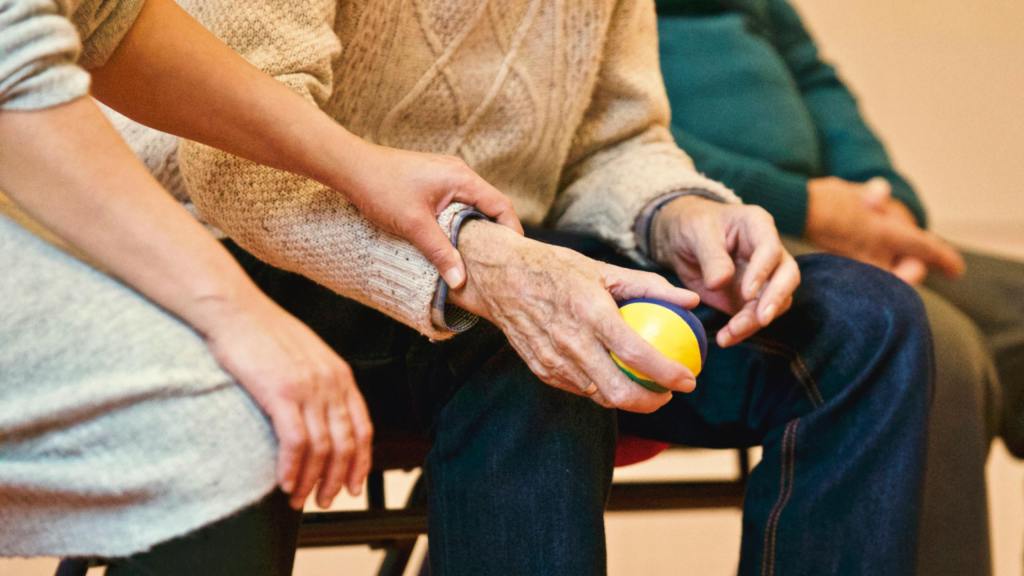
Senior Assessments: How to Know if Your Elderly Parents Need Help
As we age, we will likely need help to keep us safe at home or in the community. Some people may need more support suddenly. Other people may show subtle signs and gradually need more support over time. For adult children with aging parents, it can be hard to know what signs to look for and how to help.
There are several signs that can indicate that an aging or elderly person needs help.
Cognitive and Memory Problems in Elderly Parents
Recurring or frequent memory problems can be a warning sign of Alzheimer’s disease or dementia. If your parent begins to forget where they are or where their home is, or they begin to forget to take their medication or turn off the stove, it might be time to seek additional help.
Some signs that may indicate a more serious decline in cognitive abilities include:
- Sleeping through most of the day
- Sudden changes in sleeping patterns in general, such as awake at night or taking more naps during the day
- Confusion or forgetfulness when performing familiar tasks
- Missing appointments and commitments
- Not recognizing familiar people
- Using poor judgment (e.g., giving out credit card or banking details to unverified callers)
- Taking incorrect medication dosages or forgetting to take medications
- Mood swings or sudden changes in personality
- A decreased interest in once-enjoyable activities and hobbies
- Sadness or depression; frequent fatigue
Watch for patterns, multiple warning signs, or even a single warning sign that occurs more often.
Changes in Physical Capabilities in Elderly Parents
Many chronic health conditions can lead to a decline in physical function over time. Arthritis can make it difficult for a person to walk up and down stairs, dress themselves, or prepare meals. Heart disease can make it challenging for a person to clean their home or do yardwork. And history of stroke may have left your parent with weakness in one or both sides of the body.
If your aging parent has a chronic health condition, educate yourself on the symptoms and know how they may impact the ability to perform everyday tasks. Watch for:
- Problems with balance (holding on to walls and furniture to when walking around the home)
- Difficulty navigating stairs or narrow hallways
- Problems getting up from a seated position
- Limping or expressions of pain when moving
- Slips and falls
- Unexplained bruises or other injuries
- Eating less, loss of appetite, losing weight
- Worsening vision and/or hearing
There are some more subtle signs that an aging adult is experiencing a decline in their physical abilities, such as:
- Poor personal hygiene (which may indicate that a person is avoiding showering due to difficulties)
- Lack of fresh food in the fridge
- A cluttered or dirty home
- Piles of dirty, unwashed clothing
- Stacks of unpaid bills or unopened mail
If you notice one or more of these signs, it may be time to have a conversation with your parent. Let them know what you are seeing, “Mom, looks like there is a lot of dirty laundry over here. Can I carry these to the washer/go to the laundromat with you? I have to go to the store tomorrow, can I pick up some detergent for you?” Create an opportunity for conversation without passing judgment or being critical. Ask questions to understand what the barrier or obstacle might be, and then help solve for it.
What to Do If You Suspect Your Aging Parent Needs Help
- Speak with your parent. Talking to your parent about seeking additional help for them at home is not an easy conversation for most people to have. Your parent probably doesn’t want to give up their independence; it may be difficult for you as well to acknowledge that the people who cared for you for your whole life may now require someone to help care for them. While difficult, it is important to bring your parent into the conversation so you can ensure their needs are adequately met while their wishes are respected as much as possible.
- Speak with your parents’ health care provider with their permission. If you notice some of these warning signs, talk to your parent’s health care provider to rule out medical conditions or medication side effects that can explain the symptoms you have noticed. If an underlying health condition is to blame, there may be treatment options that can reduce or eliminate symptoms. Likewise, there may be alternative medications with fewer side effects if a medication is believed to be the root of the problem.
- Find resources and support. If your parent continues to experience any combination of these warning signs after other causes are ruled out or eliminated, it is time to consider seeking additional help. Your parents’ healthcare provider may be able to direct you to local resources or make referrals to services that can help. You can also reach out to your local Area Agency on Aging. Some agencies can connect you with other resources or arrange for a needs assessment for your aging parent, which provides a third-party, expert evaluation of your parent’s needs.
Careforth helps families by supporting those who care for their loved ones at home. Learn more about our coaching and support programs for caregivers and how they could help you.
More insights like this:
-

Helping an Aging Loved One Through Declining Mental Health
Read more: Helping an Aging Loved One Through Declining Mental HealthMental health challenges can impact anyone at any time of life. However, older adults tend to be more vulnerable to depression and other mental illnesses, on average, with 14% of adults aged 60 or older suffering from a mental disorder. “If you recognize or hear from a loved one that their day-to-day life is significantly…
-

Delirium vs. Dementia: Causes, Symptoms, Treatments, and Preventative Measures
Read more: Delirium vs. Dementia: Causes, Symptoms, Treatments, and Preventative Measures5 Key Things Family Caregivers Need to Know About Delirium and Dementia Onset and Course Are Key Clues That Caregivers Should Watch Closely Delirium develops suddenly (hours or days) and often fluctuates; dementia progresses gradually over months or years. Acute changes in thinking or attention should trigger urgent medical evaluation. Delirium and Dementia…
-

7 Immune System Booster Tips for Seniors
Read more: 7 Immune System Booster Tips for SeniorsThe immune system is the body’s first line of defense against viruses and infections, but the aging process can weaken the immune system. Throughout the COVID-19 pandemic, this became an increased concern for the caregivers of older or immunocompromised adults, as the risk of more severe symptoms and outcomes was much higher in these…